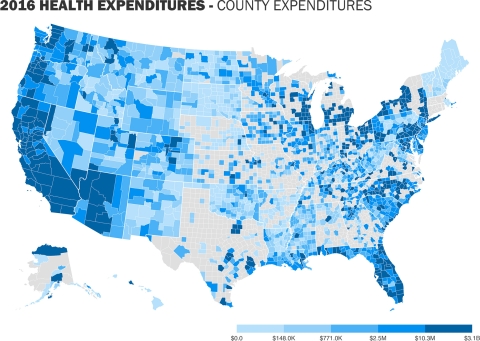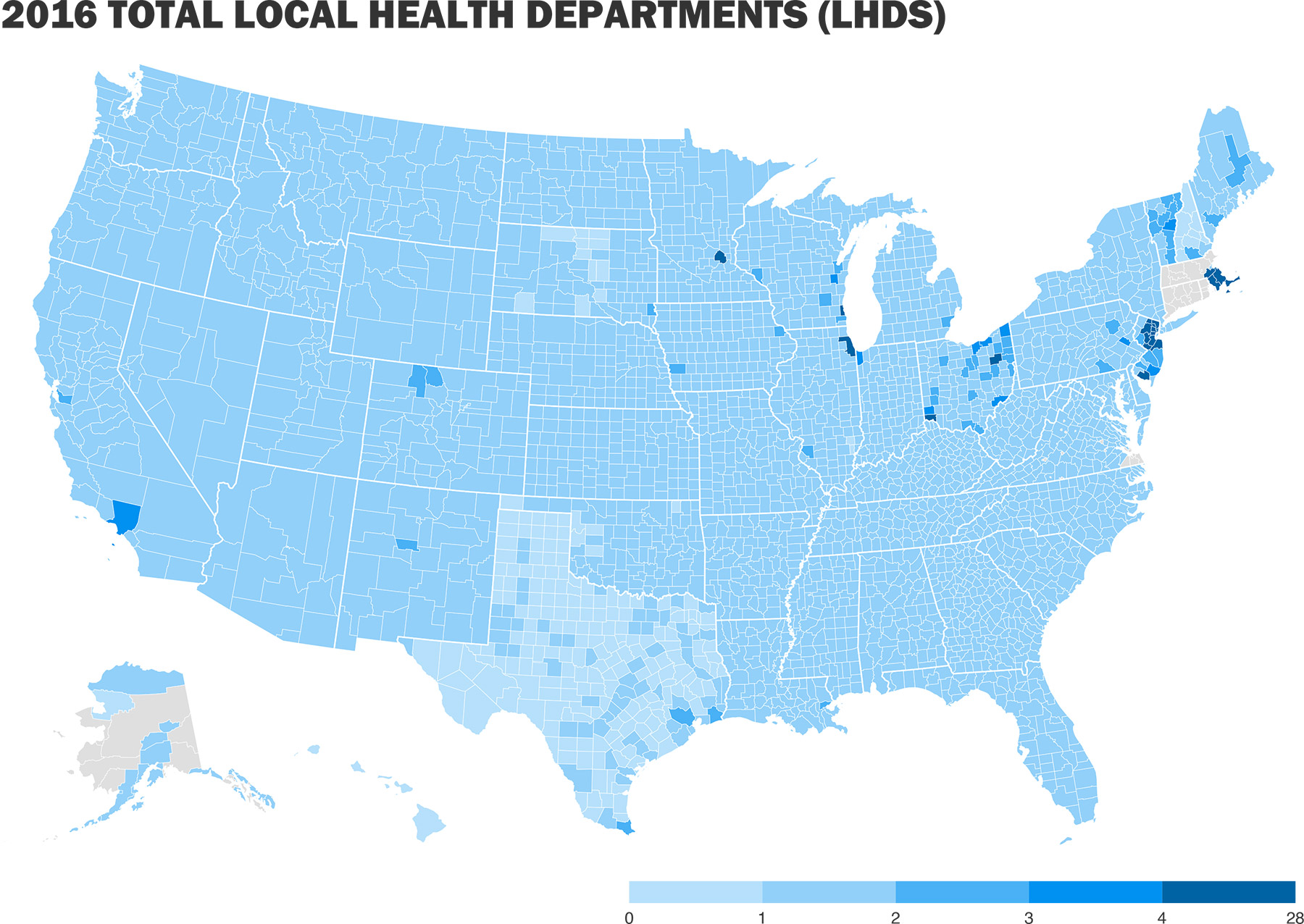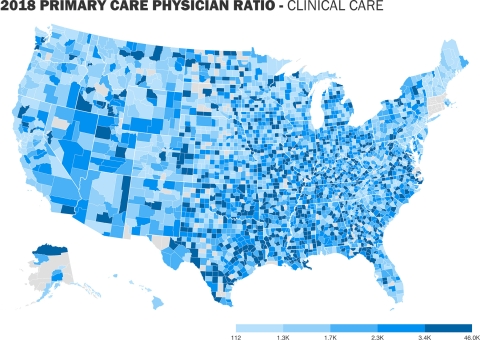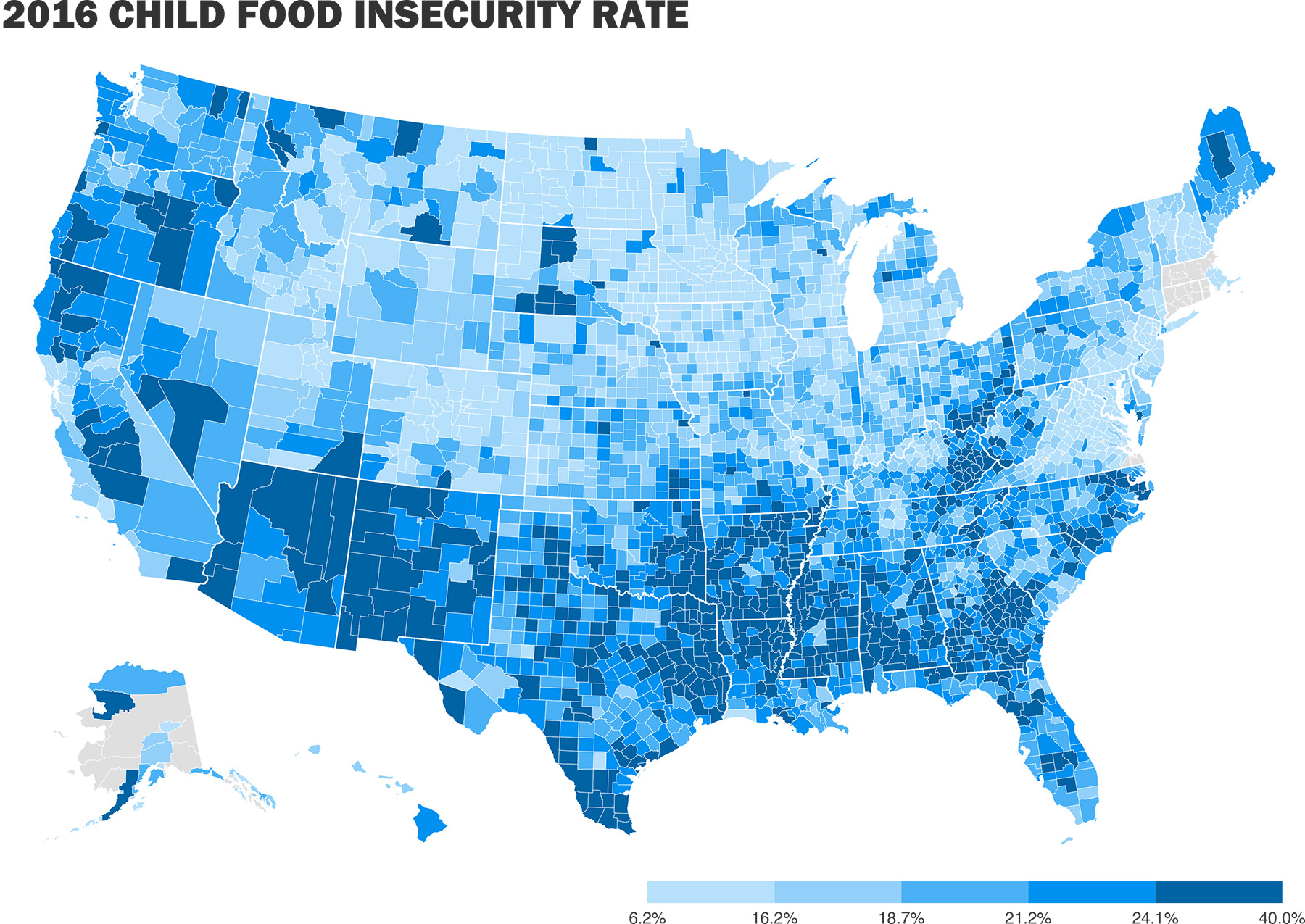County Responses to the COVID-19 Pandemic: Health
Author

Ashleigh Holand

Nastassia Walsh
Upcoming Events
Related News
Infectious disease outbreaks can strike any community at any time. During an outbreak, counties are on the front lines providing services, funding, leadership and guidance. From outbreak investigations to public health preparedness and training, counties invest heavily in efforts to protect the health and safety of their residents. Counties spend more than $80 billion annually on the management of public health departments, community health centers, county-run hospitals, teaching clinics and long-term care facilities and set public health policies, support prevention and education programs, ensure access to care and respond to public health emergencies.
In March 2020, novel coronavirus (COVID-19) rapidly impacted individual households, communities, schools, businesses and health systems in the U.S. As counties across the nation work to respond to this new communicable disease, we have highlighted efforts focused on health, including personal protective equipment, screening and testing and access to food.
Personal Protective Equipment
Personal protective equipment (PPE) (e.g., gloves, masks, gowns, face shields and respirators) is essential for patients and providers during infectious disease outbreaks. Due to the widespread, increasing case counts of COVID-19, officials announced that national stockpiles of PPE are depleted and typical supply chains have broken. Counties and other local governments commonly source PPE and serve as a coordinating body for issuance in most communities. These shortages are leading county health officials to urge the public to make donations for emergency services and healthcare workers.
In late March, the president signed an executive order to prevent the hoarding of medical supplies needed for coronavirus response. This directive also established the creation of a federal task force to address excessive accumulation and price gouging of PPE associated with home use and above market resale. Adjacent to county-level pleas for PPE, federal officials are asking for the voluntary release of any hoarded medical items.
Many counties across the country are relying on PPE donations in response to shortages in their communities. Scare supplies are forcing frontline workers to sterilize and re-use masks and other medical equipment intended for one time use (Wichita County, Tex., Butler County, Iowa).
Counties have established donation and distribution sites and are encouraging residents, particularly non-essential businesses, such as salons and schools, to donate their existing, unused supplies (Cape May County, N.J., Hamilton County, Ohio, Wood County, Wis.).
Screening and Testing for COVID-19
Health screenings and testing are critical tools in managing the care of patients and understanding the prevalence of disease in a community. During an outbreak, public health officials and clinicians rely heavily on clinical assessments and accurate lab tests to develop case definitions, trace contacts, treat symptoms and deploy resources. Furthermore, many counties manage laboratories that work in conjunction with other county public health services to detect the spread of communicable diseases. As COVID-19 cases emerged in the U.S., lack of testing resulted in slow reporting; however, counties are developing screening protocols and ramping up diagnostic efforts as more tests become available.
Many counties are offering telemedicine services for initial screenings and drive-thru COVID-19 testing by appointment or referral (Palm Beach County, Fla., Morris County, N.J., Toledo-Lucas County, Ohio, Chester County, Pa., Howard County, Md.).
Food Access for Students
Schools play a critical role in addressing food insecurity among students. In many communities, counties serve a sizable number of children and youth who qualify for free and reduced lunch - an indicator of families living below the poverty line. With the many school closures and county-wide shutdowns amid the coronavirus outbreak, counties are meeting the needs of food insecure students and families who typically rely on schools for meals.
The health impacts of coronavirus on communities is still uncertain. As counties remain on the frontlines responding to this public health crisis, NACo is committed to supporting our members by sharing information, best practices and innovative solutions.



